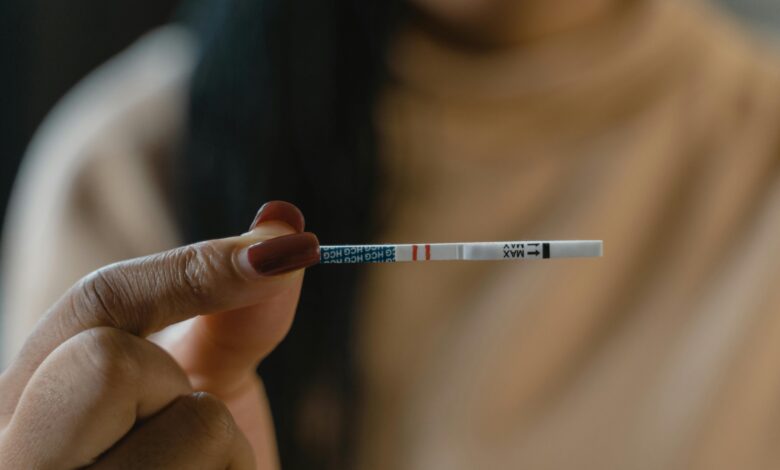hCG Level in Twin Pregnancy: What You Need to Know

Pregnancy brings an array of hormonal changes, but when you’re expecting twins, the biological activity inside your body is even more intense. Among the most critical markers during early pregnancy is the hCG level, or human chorionic gonadotropin, which plays a vital role in confirming and monitoring pregnancy progression.
If you’re wondering how hCG levels in a twin pregnancy differ from a singleton pregnancy, what numbers are considered normal, and what abnormal readings might indicate, this guide will answer all your questions in depth.
What is hCG?
Human chorionic gonadotropin (hCG) is a hormone produced by the placenta shortly after a fertilized egg attaches to the uterine lining. It’s the primary hormone that home and blood pregnancy tests detect to confirm pregnancy.
Key points about hCG:
Levels rise rapidly during early pregnancy.
They typically double every 48–72 hours.
Peak levels usually occur between 8–11 weeks of gestation.
After the first trimester, levels begin to decline and stabilize.
Click the link for details about Can Twins Cause a False Negative Pregnancy Test? What You Need to Know
How hCG Levels Behave in a Twin Pregnancy
In a twin pregnancy, two placentas (or sometimes one shared placenta in the case of identical twins) produce hCG. This results in significantly higher hCG levels than in a singleton pregnancy.
Key Characteristics:
hCG levels in twin pregnancies are often 30% to 100% higher than in singleton pregnancies during the first few weeks.
These elevated levels can lead to stronger early pregnancy symptoms, such as severe nausea, fatigue, and breast tenderness.
Blood tests may show faster than average doubling times due to the increased hormonal output.
Normal hCG Range in Twin Pregnancies
While hCG ranges vary widely among individuals, the following chart outlines average hCG levels in singleton vs. twin pregnancies:
| Gestational Age (Weeks) | hCG Range (Singleton) | hCG Range (Twins) |
|---|---|---|
| 3 weeks | 5 – 50 mIU/mL | 10 – 100 mIU/mL |
| 4 weeks | 5 – 426 mIU/mL | 200 – 1,000 mIU/mL |
| 5 weeks | 18 – 7,340 mIU/mL | 500 – 10,000+ mIU/mL |
| 6 weeks | 1,080 – 56,500 mIU/mL | 7,000 – 200,000+ mIU/mL |
| 7–8 weeks | 7,650 – 229,000 mIU/mL | 30,000 – 300,000+ mIU/mL |
Note: These are general reference values. Your individual results may differ based on implantation timing, placental function, and embryo development.
Why Are hCG Levels Higher in Twin Pregnancies?
1. Double Placental Activity
Two gestational sacs (and possibly two placentas) produce more hCG.
2. Increased Trophoblastic Tissue
Trophoblasts form the outer layer of the embryo and contribute to hCG production. Twins have more of this tissue, leading to higher hormone levels.
3. Greater Embryonic Load
With two embryos developing simultaneously, your body receives a larger hormonal signal from the very beginning.
How Early Can hCG Levels Indicate Twins?
In many cases, hCG levels alone cannot definitively confirm a twin pregnancy. However, exceptionally high values may raise suspicion and prompt your provider to schedule an early ultrasound.
Potential Early Clues:
Strong positive line on home pregnancy test very early (before missed period)
Extremely high blood hCG levels
Exaggerated early symptoms (nausea, bloating, fatigue)
Faster-than-usual rise in hCG on serial beta tests
Still, only an ultrasound can confirm the presence of twins.
Can High hCG Be a Problem?
While high hCG is typical in twin pregnancies, excessively elevated levels can sometimes indicate other conditions:
Possible Causes of Extremely High hCG:
Molar pregnancy
Gestational trophoblastic disease
Incorrect dating of the pregnancy
Down syndrome (in singleton pregnancies)
If your hCG levels seem unusually high, your doctor may recommend follow-up tests or an ultrasound for further evaluation.
Tracking hCG with Beta hCG Blood Tests
Doctors often use quantitative beta hCG blood tests to monitor how levels progress over time. In a healthy pregnancy:
hCG should double every 48 to 72 hours
A slower rise may suggest a potential issue
Rapid rise may point to twins, but not always
Here’s how results are typically interpreted:
| hCG Rise Pattern | Possible Interpretation |
|---|---|
| Normal doubling every 48–72 hours | Healthy pregnancy (singleton or twins) |
| Faster than normal rise | Possible twins or molar pregnancy |
| Slower rise or plateau | Possible miscarriage or ectopic pregnancy |
Symptoms of High hCG in Twin Pregnancies
Many women with twins experience stronger and earlier symptoms due to elevated hCG levels:
Severe morning sickness (Hyperemesis Gravidarum)
Early weight gain
Extreme fatigue
Heightened smell sensitivity
Rapidly increasing breast tenderness
These symptoms, combined with high hCG levels, may signal a twin pregnancy.
Twin Pregnancy hCG vs. Singleton: Myths vs. Facts
| Myth | Fact |
|---|---|
| Very high hCG always means twins | Not necessarily. It could also mean miscalculated dates, molar pregnancy, or high individual variation. |
| You can know for sure from hCG alone | Only an ultrasound can confirm twins. hCG provides clues, not confirmation. |
| Twin hCG always doubles faster | Often true, but not guaranteed. Some singleton pregnancies also have fast-rising hCG. |
When to See a Doctor
If your hCG levels are much higher than expected for your gestational age, or if you’re experiencing intense pregnancy symptoms, see your OB-GYN. Your provider may:
Order serial beta hCG tests
Schedule an early ultrasound (around 6–7 weeks)
Review your medical history and risk factors
Early detection of twins is important for monitoring, especially since twin pregnancies carry a higher risk of complications like preterm labor and gestational hypertension.
FAQs: hCG Level Twin Pregnancy
Q1: Are hCG levels always higher in twin pregnancies?
A: Generally, yes, but not in every case. Some twin pregnancies may have hCG levels similar to singleton pregnancies, especially in early stages.
Q2: How early can hCG levels suggest twins?
A: Around 4–6 weeks. However, only an ultrasound can confirm twins; hCG levels provide clues but are not definitive.
Q3: Can high hCG indicate a problem?
A: Sometimes. Conditions like molar pregnancy or incorrect dating can also cause high hCG levels. It’s important to follow up with your doctor.
Q4: Will a home pregnancy test be more positive with twins?
A: You may get an earlier or darker positive line, but the test doesn’t indicate how many babies you’re carrying.
Q5: Can hCG levels drop in twin pregnancies?
A: Yes. Like singleton pregnancies, hCG peaks around weeks 8–11 and then naturally declines. A significant drop should always be evaluated.
Conclusion
If you’re pregnant and wondering whether high hCG levels might mean twins, you’re not alone. Twin pregnancies usually produce higher levels of hCG, especially in the first trimester, and often come with more intense early symptoms. However, hCG alone cannot confirm a multiple pregnancy—only a properly timed ultrasound can do that.
Monitoring hCG levels through blood tests can be an important part of early prenatal care. Always consult your healthcare provider for interpretation of test results and guidance on next steps.
Whether you’re carrying one baby or two, understanding your hCG level in twin pregnancy can help you better prepare for the journey ahead.



